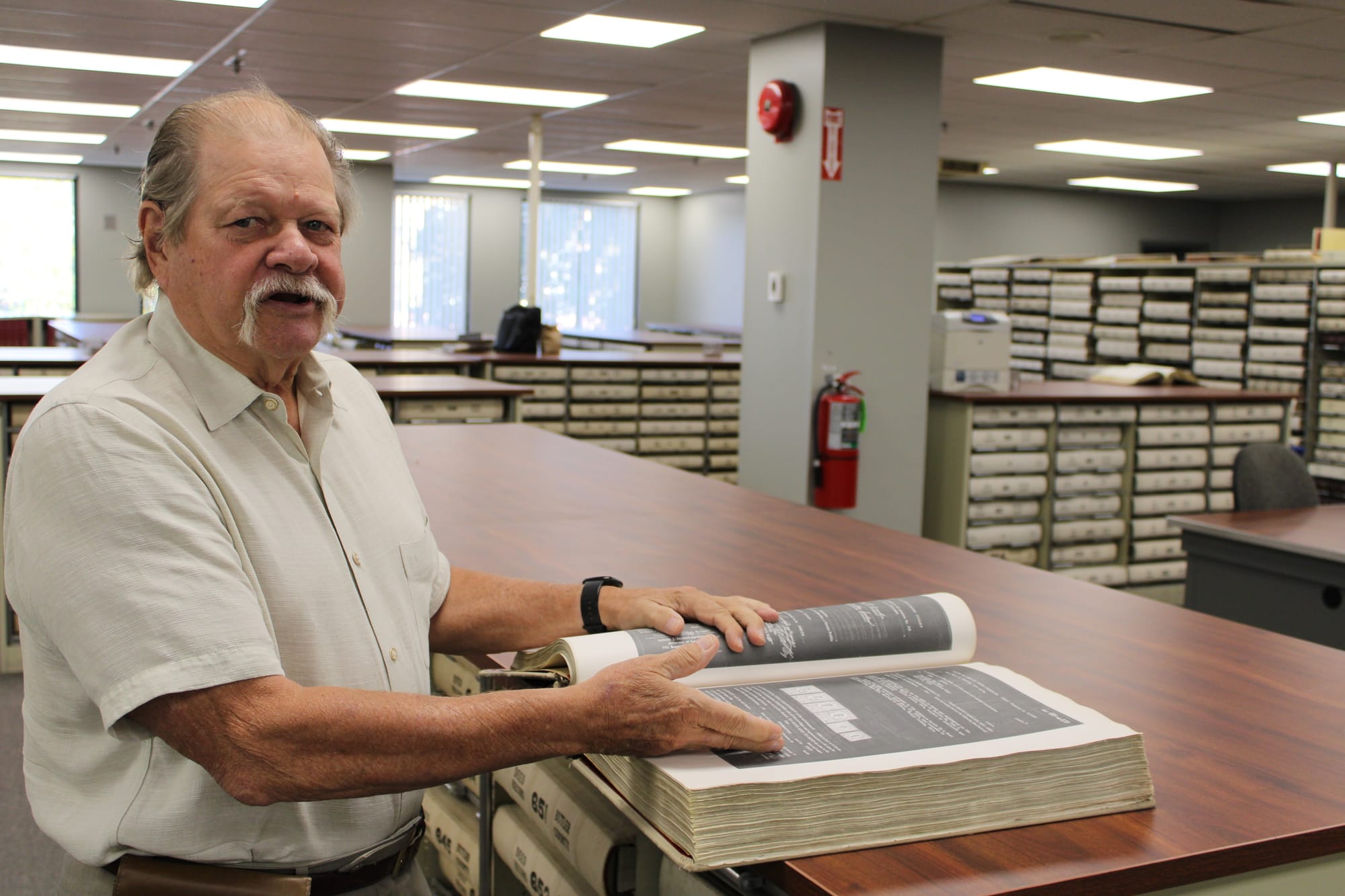Every four years, voters in Butler County cast ballots for the County Recorder. But what does that official actually do?
As voters across Butler County cast their ballots early and on Election Day Nov. 5, they’ll vote for 10 countywide offices. While the two County Commissioner races are contested, the candidates for the remaining positions, from prosecuting attorney to coroner, are running unopposed.
Among them is Danny Crank, who has served as County Recorder since 1999. Crank’s office may be less well known than the prosecutor’s or the treasurer’s, but the work he does impacts every property owner in the county.
What is a County Recorder?

Every county in Ohio is required to have a County Recorder. The Recorder’s office maintains permanent records of every document related to land ownership, including titles, deeds and liens on properties. Crank’s office maintains more than a million pages of records, some dating back to 1796.
Before expanding online services, Crank said his office could process up to 300 physical documents a day related to property records. The office currently has 16 workstations for members of the public to come in and look at records themselves. While many people who come in are title examiners — professionals who examine the legal ownership of properties — Crank said they also get researchers interested in genealogy who want to understand more about the property their families owned.
Tyler Wiggers, an assistant lecturer and Director of Industry Partners and Engagement for Miami University’s Center for Real Estate Finance and Investment, has three decades of experience in real estate, including working for the New York Federal Reserve. The U.S. has more than 3,000 counties and parishes across the 50 states. “Each one of them is responsible for who owns what parcel,” Wiggers said, as well as any liens on properties.
“In a certain segment of a commercial real estate deal, [the County Recorder] is very important,” Wiggers said. “It’s the only place you can go to get information on the title and liens that are placed against it. There might be third-party data sources that have the information, but they get their information from the county.”
Wiggers said the title information is important for people buying real estate to determine that sellers actually own the property in the first place. The process of making sure you have a clean title involves looking back through the chain of ownership that county recorders maintain. If they weren’t performing that function, Wiggers said it could increase uncertainty in the market and drive down values.
While title examiners and others used to have to visit the County Recorder’s Office in person to find the records they needed, the internet has changed that. When Crank began to transfer to electronic recording in 2005, he was the first recorder in the State of Ohio to do so. On Oct. 24 of this year, Ohio Senate Bill 94 went into effect, requiring all county recorders across the state to make records dating back to 1980 available online by mid-2026.
Crank’s journey to the Recorder’s Office
During his two decades working in the private sector in real estate, Crank recalls bringing his new employees up to the County Recorder’s office to show them how to look through titles and deeds and look up liens.
Later, Crank ran for and was elected to Hamilton City Council. When the former County Recorder retired in 1999, one year before her term would have ended, Crank had already been planning to run for the position in 2000. Crank was appointed to fill the position before the election and has retained it ever since.
“Even though I’ve been here for a long time, it seems like it’s been condensed because there was so much going on,” Crank said. “I couldn’t leave because it was part of me.”
Among those major events, Crank has navigated the growth of online recording, the 2007 financial crisis and the COVID-19 pandemic. He says Butler County managed the pandemic better than some other recorders’ offices that hadn’t already made records available online. He’s deeply involved in the Ohio Recorders Association, though, so he helped others manage the switch.
“All they have to do is go on a computer, do their title search and get that document ready to close within a week at the most … It speeds up the real estate process which goes back to what makes the economy work in this country is real estate transactions taking place,” Crank said.
The ease of information access could also contribute to rising real estate costs. Wiggers said real estate professionals are competing in much bigger markets now that people can access information from anywhere. When Wiggers started in real estate in the ’90s, it was a local game.
“If I wanted to invest in Cincinnati, it was a lot of time to get to know all the players, who’s selling, who’s buying, who might be able to help me,” Wiggers said. “If I wanted to do that in Indianapolis or Chicago or Detroit, I physically would have to go there or partner up with somebody who knew that market.”
Still, Crank sees a lot of upsides. Since being elected, Crank’s staff has slimmed down from 21 employees to just eight because digitization has allowed them to become more efficient, not hiring back after people retire. All but one of Crank’s employees has been in the office as long as he has, a fact which he’s proud of.
Beyond helping members of the public looking for information, Crank said he spends much of his time looking for ways to improve efficiency, preparing his budget for the Butler County Commissioners and explaining his function at events for other organizations.
Now, Crank is running for reelection to manage one more major change. His office is set to move out of the Administration Building and into the courthouse next year. The county contracted with a company to scan every page of every document Crank maintains, and now that that task is done, Crank’s books are set to be transferred to storage in Michigan.





